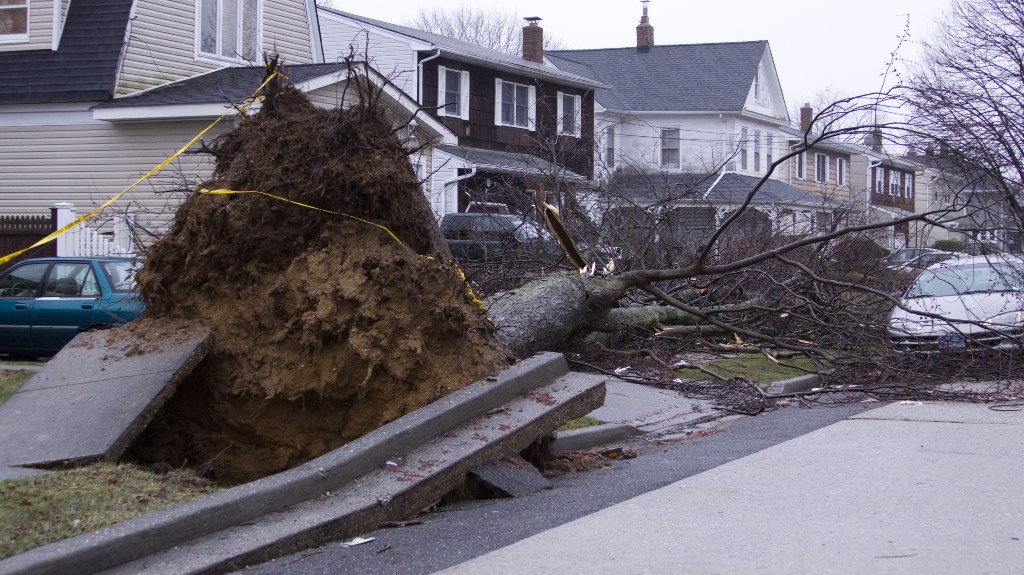Documenting Hurricane Damage in Florida: A Comprehensive Guide

When a hurricane strikes Florida, the aftermath can be overwhelming. Homes, properties, and personal belongings can suffer extensive damage. Properly documenting this damage is crucial for filing insurance claims and ensuring you receive the compensation you deserve. This guide will walk you through the steps to effectively document hurricane damage, highlighting why it’s essential and how Parrish Law can assist you during this process.
Before the Storm: Preparation is Key
It’s always better to be safe than sorry. Preparing for Florida hurricanes involves more than stocking up on food, water, and supplies. Here are some simple ways to protect your home before disaster strikes. For insurance purposes, Florida homeowners should be sure to:
Create a Home Inventory
Before hurricane season begins, create a detailed inventory of your belongings.
This inventory should include photographs, videos, and descriptions of each item, with purchase receipts or appraisals. Store this information in a safe, accessible place (such as a cloud-based service) to ensure it remains intact even if your home suffers damage.
Review Your Insurance Policy
Understanding your insurance policy is vital. Review your coverage to know what is and isn’t covered, and make note of any deductibles. This knowledge will be invaluable when filing a claim and ensuring you’re adequately compensated for your losses.
Immediately After the Storm: Safety First
After a hurricane, prioritize your safety and that of your family. Avoid hazards such as downed power lines, flooded areas, and unstable structures. Once it’s safe to do so, begin the documentation process.
Document the Damage with Photographs and Videos
Take extensive photographs and videos of the damage to your property. Start with wide-angle shots to capture the overall condition of your home and yard. Then, move closer to document specific damage to the structure, roof, windows, doors, and personal belongings. Ensure your images are clear and detailed, capturing multiple angles for a comprehensive record.
Keep Detailed Notes
Keep detailed notes of the damage. Describe what you see, the location, and the extent of the damage. Include all relevant information, such as water levels in flooded areas or visible structural cracks. These notes will be useful when communicating with your insurance company and contractors.
Save Damaged Items
If possible, save damaged items as evidence. This can include broken furniture, appliances, or personal belongings. If you must dispose of items due to health or safety concerns, take photographs beforehand to document their condition.
Contact Your Insurance Company and Report the Damage Promptly
Contact your insurance company as soon as possible to report the damage. Provide an initial overview and inform them you are sending detailed documentation immediately. Early reporting can expedite the claims process.
Work with an Insurance Adjuster
An insurance adjuster will likely visit your property to assess the damage. Be present during this visit to ensure all damage is noted and discussed. Provide the adjuster with your photographs, videos, notes, and inventory list to support your claim.
Filing a Claim: Be Thorough and Accurate with Documentation
Submit all your documentation to your insurance company, including photographs, videos, notes, and any receipts or appraisals for damaged items. Ensure your submission is thorough and organized to avoid delays in processing your claim.
Keep Records of Communication
Keep a record of all communications with your insurance company, including emails, letters, and phone calls. Note the names of representatives you speak with, alon with the dates and times of your conversations. This record can be vital if any disputes arise during the claims process.
Dealing with Disputes: Legal Assistance is Important
If your insurance claim is denied, undervalued, or delayed, it may be time to seek legal assistance. At Parrish Law, we specialize in hurricane insurance claims and can help you navigate the complexities of the legal process. Our experienced team will work to ensure you receive the compensation you’re entitled to so you can move forward with your life.
How Parrish Law Can Help You Recover From Hurricane Damage
Parrish Law is dedicated to helping Florida residents recover from hurricane damage. We offer free consultations to review your case and provide expert guidance on the best action. Our team will handle negotiations with your insurance company, advocate for your rights, and ensure you receive fair compensation.
Preparing for the Future: Stay Ready by Updating Your Home Inventory
Regularly update your home inventory to reflect new purchases and any changes to your property. Keeping your inventory current will make future claims easier and more accurate.
Review Your Insurance Policy Annually
Review and update your insurance policy annually to ensure it meets your needs. Discuss any changes with your insurance agent, such as increased coverage for home improvements or new valuable items.
Documenting hurricane damage in Florida is the first key to recovering from a storm. Proper preparation, thorough documentation, and prompt reporting can significantly impact the success of your insurance claim. If you encounter any issues, the experts at Parrish Law are here to help. Contact us today for a free consultation and let us assist you in securing the compensation you deserve.